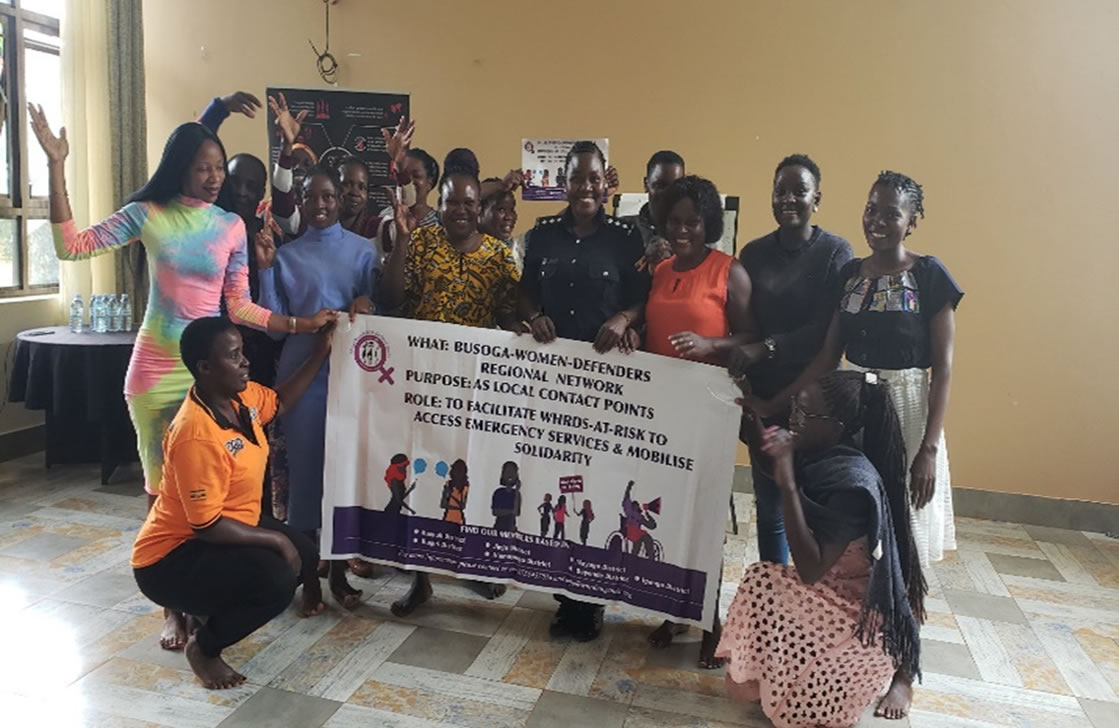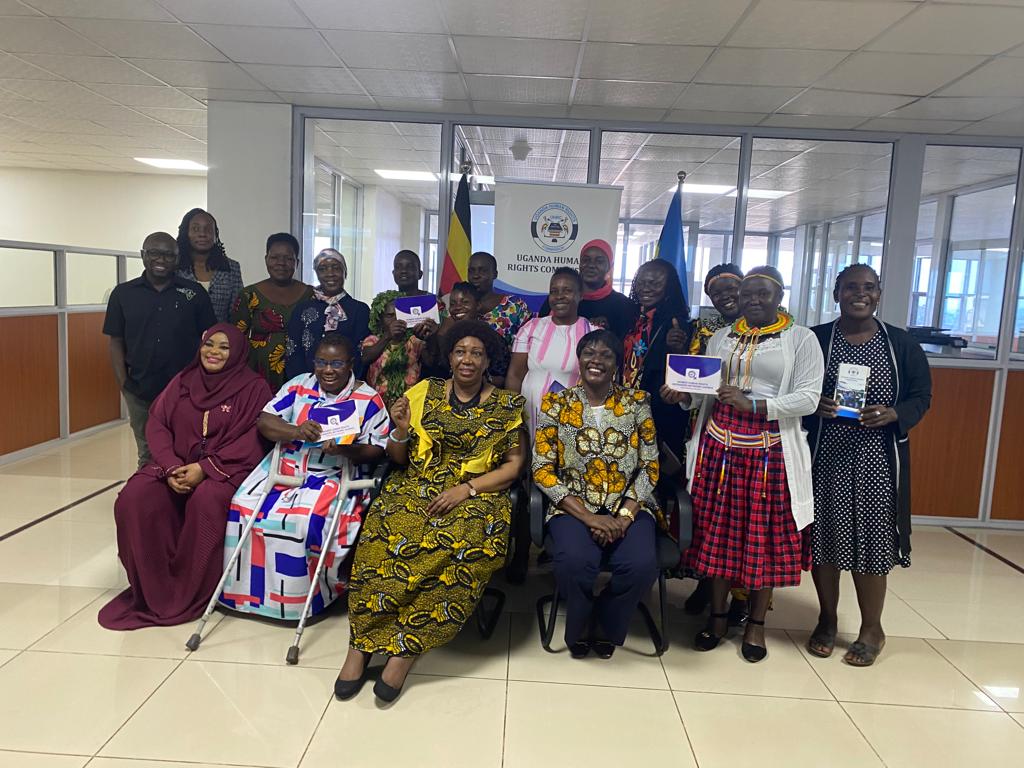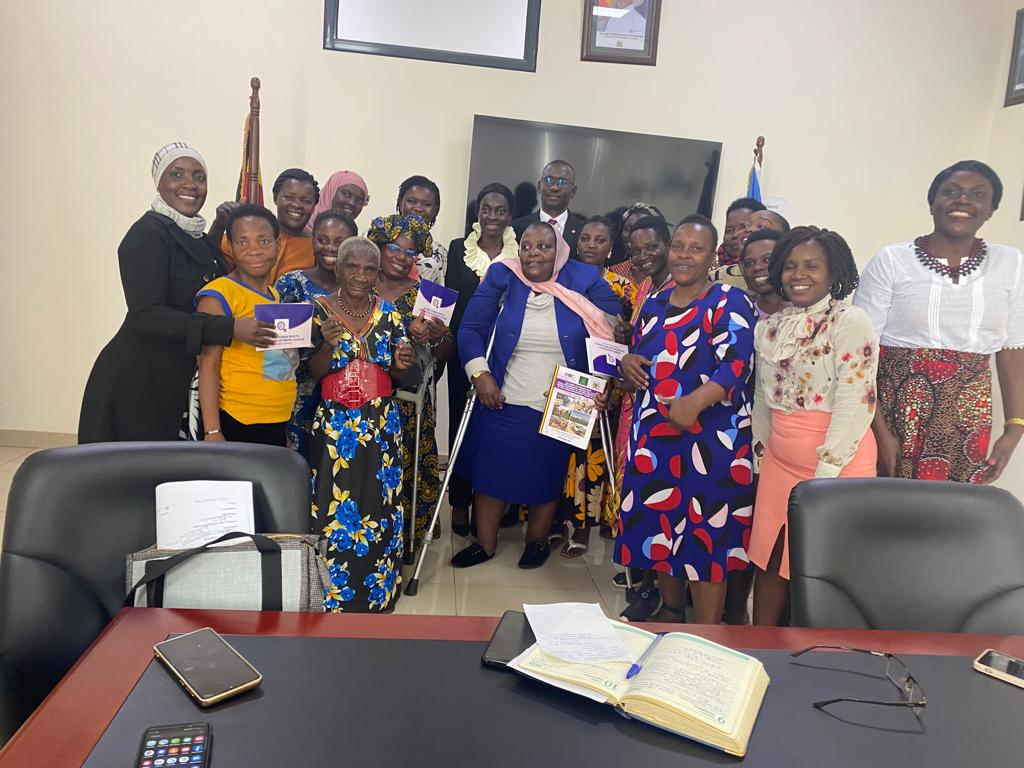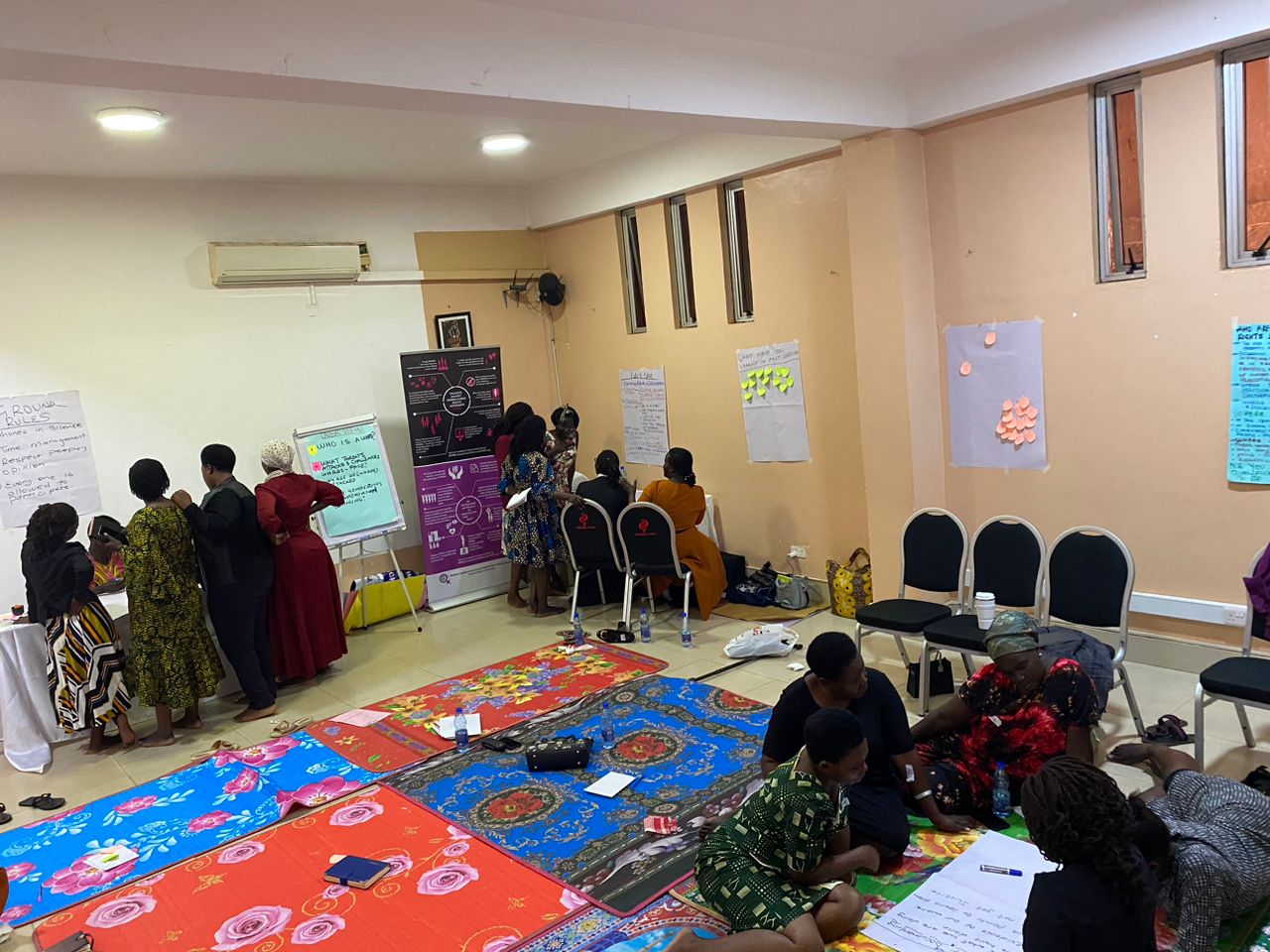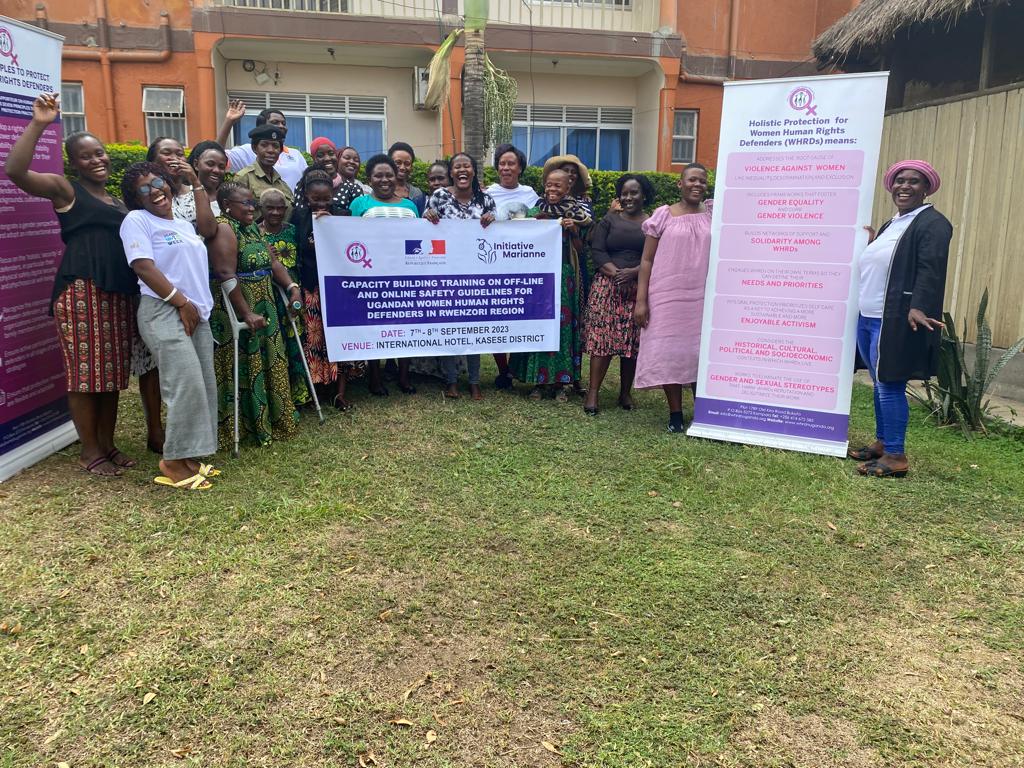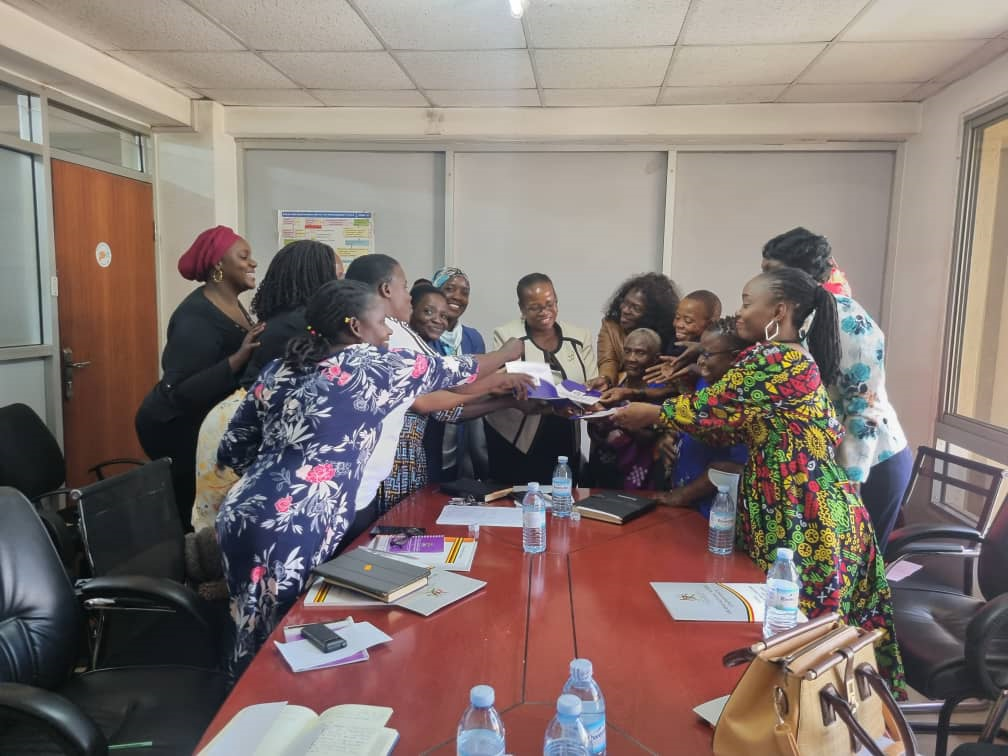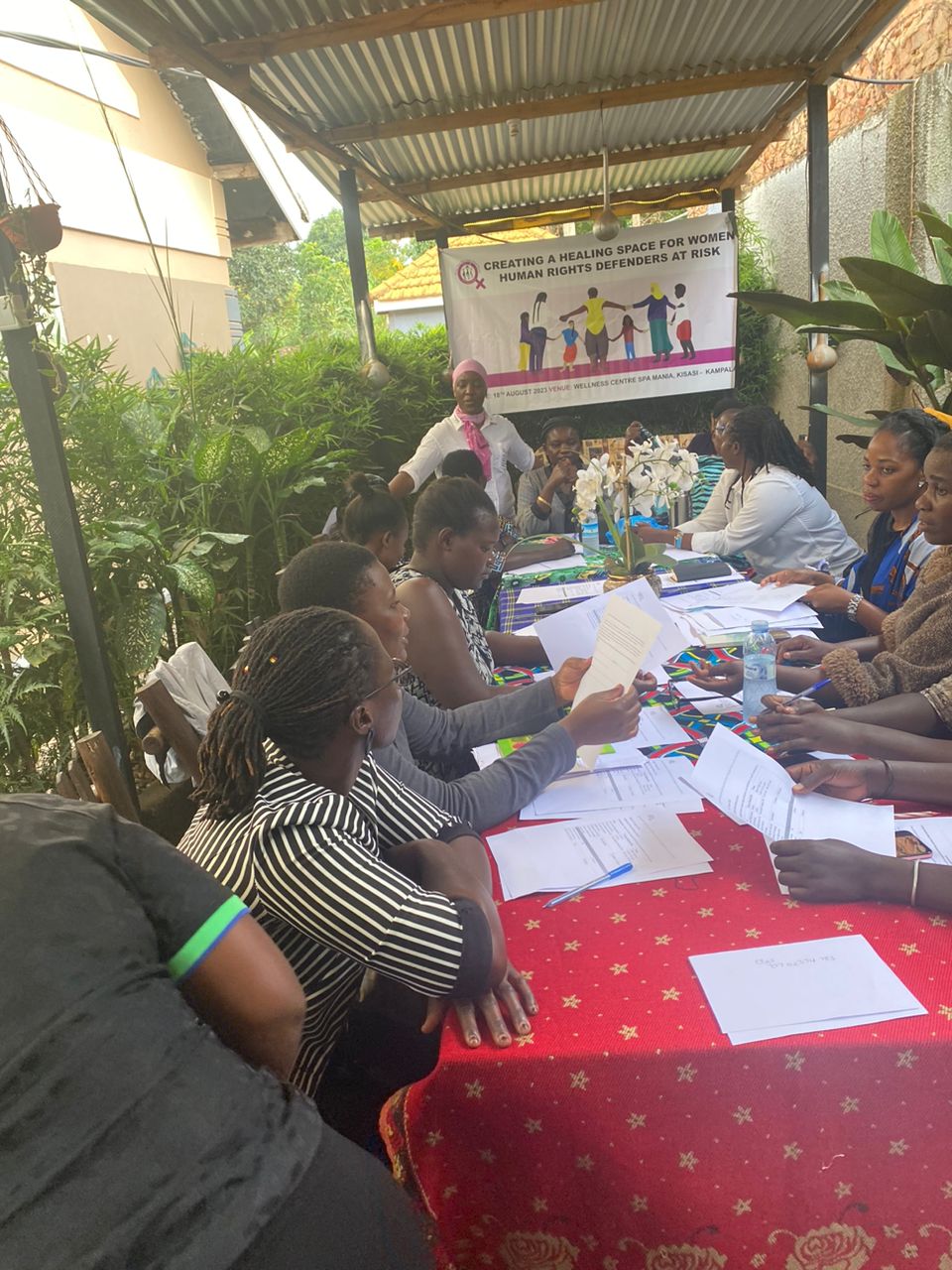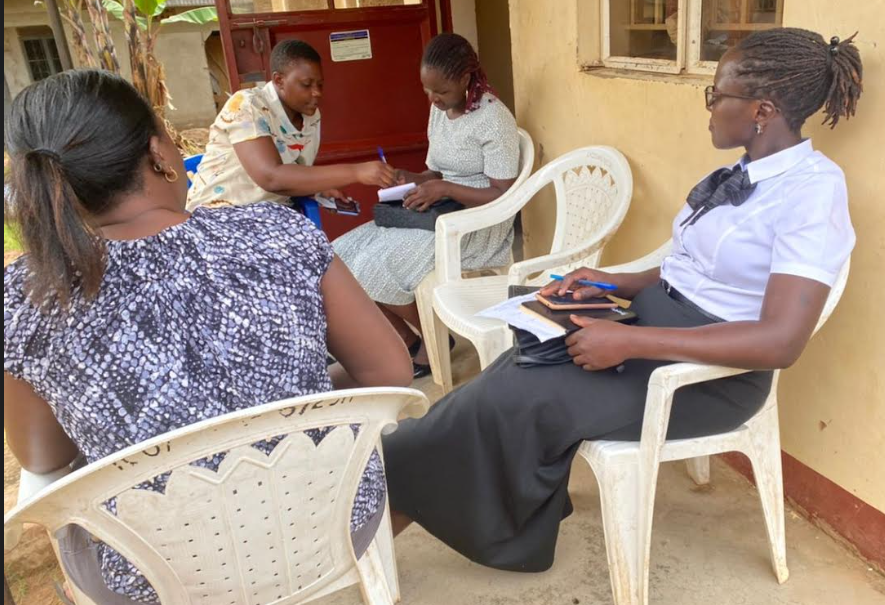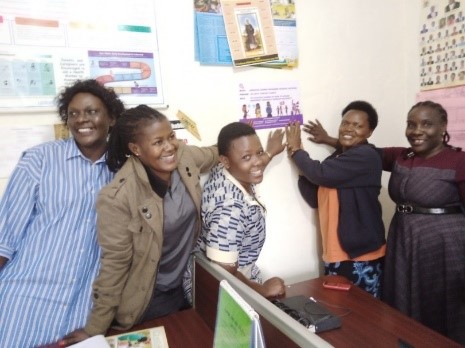WELLNESS AND SELF CARE WORKSHOP AT SPA MANIA

The Women Human Rights Defenders Network Uganda (WHRDN-U), established a holistic protection approach that links with collective and self-care strategies to empower Women Defenders. As a response to challenges of stress, exhaustion, burnout, and fatigue faced by Women Human Rights Defenders (WHRDs) in their daily activism, a Collective and Self-care, Healing and Well-being Workshop was conducted on 18/08/2023 at Spa Mania wellness centre in Kampala. This intervention emanates from gender –based violence, discrimination, threats and violations they encounter in their work. The workshop aimed to address the resulting physical, and emotional trauma, fostering self-care and wellness practices.
WHRDN-U used methodologies that involved (i) inviting WHRDs that had reported their emotional and physical risks and threats. (ii) Identifying a safe venue, and (iii) identification of a counsellor.
2.0.1. Identification of Participants
WHRDN-U supported a rest and respite activity to put a pause on the activism work of 21 (six secretariat staff and 15 –at risk-WHRDs) subjected to excessive workloads and high-stress dynamics. The WHRDs who fight for different categories of rights over the period operated in hostile contexts and were subjected to unnecessary pressure and harassment. Using a feminist perspective, we identified factors associated to the patriarchal culture, deeply entrenched cultural norms and beliefs that affect the vulnerability of WHRDs . For instance; Below are some of the experiences of WHRDs identified for the workshop.
Akello Sarah is Woman Human Rights Defender from Tapak community in Moroto district advocating for economic rights and, land rights of miners in the Mable mining sector. She has been exposing ugly human rights violations, exploitation and violence perpetuated by Tororo Cement Company including fighting for; Environmental degradation, Eviction of the community members, Revenue returns to the community, Health advocacy issues for safety gears for the miners, Drafting and advocating for the bi-law for mining and loading fee for the tracks, Advocacy for fair compensation for victims of land evictions in the mining community. She has been doing this without protection yet there have been threats against her, warnings to stop her work by police and military, faced GBV, criminalization of her work, marginalised and often excluded from decision-making processes related to mining and extractive activities not heard in by local leaders and extractive companies, and their concerns are not taken into account in decision-making processes. She did not have networks to provide solidarity, didn’t know how to maintain her sanity and emotional balance.
Olga is a woman rights activist and Executive Director with Over Comers, fighting for women and children’s rights in Adjumani district. She has mobilized grass roots networks to fight GBV. For Olga due to her passion, it is work, work, and work. Because her organization is the only organization in her community promoting women and girl’s rights. Olga reported to WHRDN-U that many times she left office after 10:00pm, goes to bed with her laptop, that she felt that parts of her are fragmented, with each other simply because of her work and work and work and does not have the time to bring everything together. This makes Olga fail to recover because her body, especially the back, aches because of sitting at your computer, day in and day out supporting survivors of violence, and this is made worse with stress of limited with resources, with no chance to rest or renew so as to release the pain, . Olga revealed to WHRDN-U how she didn’t know how to survive When her health was compromised by over-work, and sometimes felt dizzy, with aches and pains, . Olga didn’t know of any feminist organization or healing that can support her to heal, regain her energy.
Rose Kahude, as sexworker rights defender based in Kasese district- working as the Executive Director ( Kasese Health Initiative), revealed to WHRDN-U how her activism work is risky affecting her physical and emotional wellbeing. According to Rose, her works has been stigmatized, criminalized and Sexuality is a life-force but it has been stigmatized, criminalized and covered by shame and a taboo. Rose has been accused by different people in her community as supporting women who love other women and as result she has received several eviction letters to take away her office, summoned by the police and some district leaders accused of promoting homosexuality in a traditional and religious community. Some of her staff have been intimated as well . Her family is threatened because her feminist and activism work. Rose informed WHRDN-U that does not know how to deal with guilt and shame, how to balance privacy of her family and her activism, how to recharge in the event of backlash and were to find love.
Juliet Ayoo is a woman land rights defender based in Tororo district. Some people have never had about her work in remte parts of Tororo district in Uganda. The WHRDN-U knows about how Juliet has been fighting against land grabbing by so called investors and greedy government officials. We also know that Juliet is building a strong movement of women who resist called Tororo District Women Association. At some point she escaped rape and acid attack and when she reported the cases to police she was provoked, insulted and ridiculed. Juliet shared her fears with WHRDN-U how sometimes she fails to maintain power with in a culture that wants to see her powerless as a way of diverting her from activism, when people post on watsapp attacking messages simply because you are fighting for the rights of women to own land. Juliet further noted that sometimes she does not see the mind, spirit and body as a whole to keep her going.
Diana Natukunda, Executive Director of WONETHA, reported to WHRDN-U , how she was scandalized by social media and a blackmail against you, on account of your work with women sex workers. Yet she was always fighting for the improvement of their working conditions. Diana at some point spent time worried about social media, with its mindless garbage, sensational gossip, propaganda. WHRDN-U noted that Diana needed a wellness and self-care space to take time to reconnect with every part of herself.
Sarah Kabagenyi, As a woman rights defender with disability, works with Bundibugyo Women With Disability Living with HIV. Has defended women and girls with disabilities all her life without a thought for self. She has witnessed violations against theme. Sarah broke the silence and condemned abuse based on their disability. Sarah explained to WHRDN-U that sometimes she feels like retire from her activism due to her disability, when her mobility is limited. She sometimes wonders how to deal with her discomfort, how to protect her body from becoming overloaded with anxiety especially when she is reminded that she is a woman with disability and an outcast, and marginalized, and accused of being a wasted and spoilt woman. Sarah says no wonder she often feels tired and weak and constant worry of sabotage. Sometimes she needs a place that enables her to find love to ignite her.
2.0.2. Identified a safe venue.
WHRDN-U identified a safe venue that involved a clear approach to assess its security and therapies provided. The safe space was located in a facility called Wellness Centre Spa mania. The centre provided services for healing and wellness for WHRDs including Jacuzzi sessions, massage therapy, body scrub, steam bath, a good diet, rest and exercise. These sessions held the WHRDs to relax their minds and bodies away from their routine human rights work and boost their health.
2.0.3. Identification of a Counsellor:
In addition, a counsellor from healing talk Uganda conducted mental health sessions, addressing stress and trauma.
- Objectives of the workshop
- To raise awareness about self-care and its role in healing and building resilience.
- Provide practical self-care techniques for coping with stress, trauma, and emotional challenges.
- Conduct counselling sessions on mindfulness, meditation, and stress management
- Establish peer support groups of WHRDs at risk, enabling shared experiences, and healing journey.
3.0. Session one: Opening Remarks
In her opening remarks, Lenah Naddunga te Programs Coordinator, WHRDN-U, empathized the significance of self-care and the integration of wellness into daily routines. She said that as WHRDS defend the rights of others, they focus a lot on taking care of others and forget to take care of themselves. She added that some of us think that taking care of our needs will prevent us from doing our work yet we are continuously facing trauma, fatigue, stress, depression and burn out while taking care of the needs of others. She ended by saying that today we want to emphasise wellness and self-care that should be integrated into your daily practice for your mental, physical and emotional wellbeing. Taking care of one’s personal needs is not a crime and should be embraced in our daily routine work.

Lenah Naddunga The programs Coordinator giving Opening remarks during the workshop
4.0. Session two: Counsellor
Through a group psychotherapy, Janet Makka of Healing Talk Uganda focused on specific issues that women defenders raised themselves. She noted that WHRDs are undergoing significant stress due to challenges posed by duty bearers, local leaders, and individuals within their surroundings who fail to offer support. Additionally, the counselor highlighted that even their own family members sometimes struggle to provide backing for their human rights advocacy efforts. Consequently, these challenges led to instances of abuse, harassment, and emotional and psychological distress. Noting that this in turn has resulted in heightened stress levels, affecting their ability to sleep as they constantly reflect on well-being of those whose rights are being violated.

Counsellor Janet Makka
5.0. Session three: Therapies used at the facility.
Body massage: WHRDs experienced a massage that comforted their bodies, emotions, energy with foot reflexology. In addition, the massage helped women to relieve pain in the body’s oft tissues and allowed them to improve the motion lost due to trauma, including emotion realse therapy were the women defender had the opportunity to get to know how their bodies hold painful emotions and how to release them.
Body Scrub: The WHRDS were treated to body scrub to exfoliate and hydrate their skin, leaving it smooth and soft. A body scrub is done with an abrasive material usually sea salt scrub or sugar mixed with some kind of massage oil and an aromatic like essential oils. Since these women work under harsh conditions especially these involved in mining they needed the thorough body scrub to cleanse their skins for glowing effect as a way of refreshing them physically and mentally.
Jacuzzi session: This was healing through detoxification. The WHRDS were enjoyed a Jacuzzi session in which a large pool bath with a system of underwater jets of water to massage the body. Warm water flowed through small holes, producing a pleasant, bubbling effect which relaxes the mind and he body. As they enjoyed the bubbling water for relaxing of muscles, they also watched a movie as they sipped wine, while other enjoyed fruit juice. During these sessions, the WHRDS interacted as they laughed and engaged in conversation that was relaxing to the mind.

Photos of participants enjoying therapies used.
6.0. A few testimonies that reflect the contribution that WHRDN-U’s wellness and self-care activity on WHRDs lives.
- ‘For me, today’s wellness and healing activity, has been a school of reality and practical living, Said Sylvia
- I learned to love myself, I learned to respect myself and give myself time to myself,
- and to look calmly at the problems’ Said Maimuna
- After this workshop of wellness, I am not feeling bad as I came, I now have a network that tells me listen and take care of your selves, even when I get an emotional issue I face the tools to face them’ said Grace Atim.
- ‘When I arrived at Spa Mania wellness center, I realized they massaged me from the top of my head all the way to the tips of my toes, and then I saw it feels so, so good, because these things do not happen to us, because we are always living for others, but we don’t live for ourselves’ Said Gorreti
- ‘Coming to the Spamania wellness canter helped me identify the weak. For me there is before and after the experience of this wellness support, I will not leave with everything of my live solved but yes with the tools that will really help me, I want to set time aside for myself, I will take some regular massage and reflexology’ . If WHRDN-U had not brought me here I would not have known’ Said Florence Masuliya
7.0.Success
WHRDN-U created a space for healing and rest and respite for WHRDs who were experiencing extreme impacts due to the context of violence and patriarchal culture that create difficulties and obstacles in their defense work. Thus WHRDN-U
- Raised awareness about the importance of self-care and its role in healing and resilience-building.
- The WHRDs learnt to utilise practical self-care techniques and tools for coping with stress, trauma, and emotional challenges.
- Provided women with the necessary skills to manage stress and trauma effectively.
- Established fostered peer Support Groups of WHRDs at risk to start journeys of self-care.
Challenges
- Some women defenders found it challenging and asked how to balance activism and self-care. Finding the right balance between their activism work and self-care can be a constant struggle. WHRDN-U helped them on how to integrate self-care into their daily routines.
- Some WHRDs come from regions with limited access to wellness facilities, making it difficult for them to implement self-care practices like therapies used.

